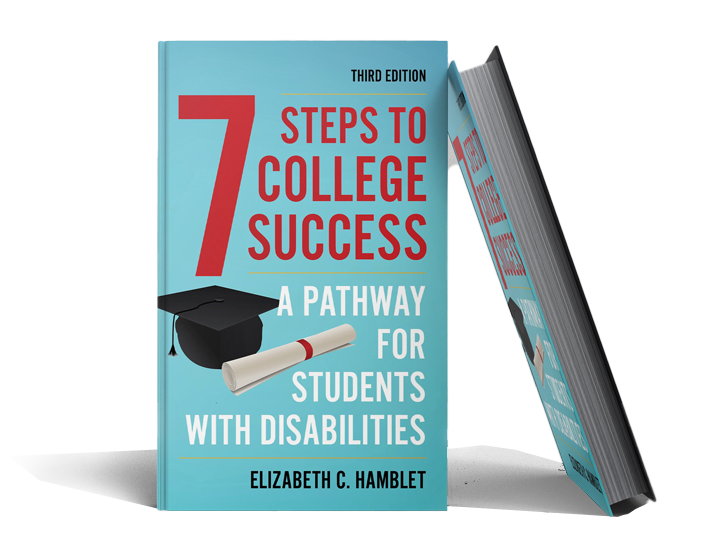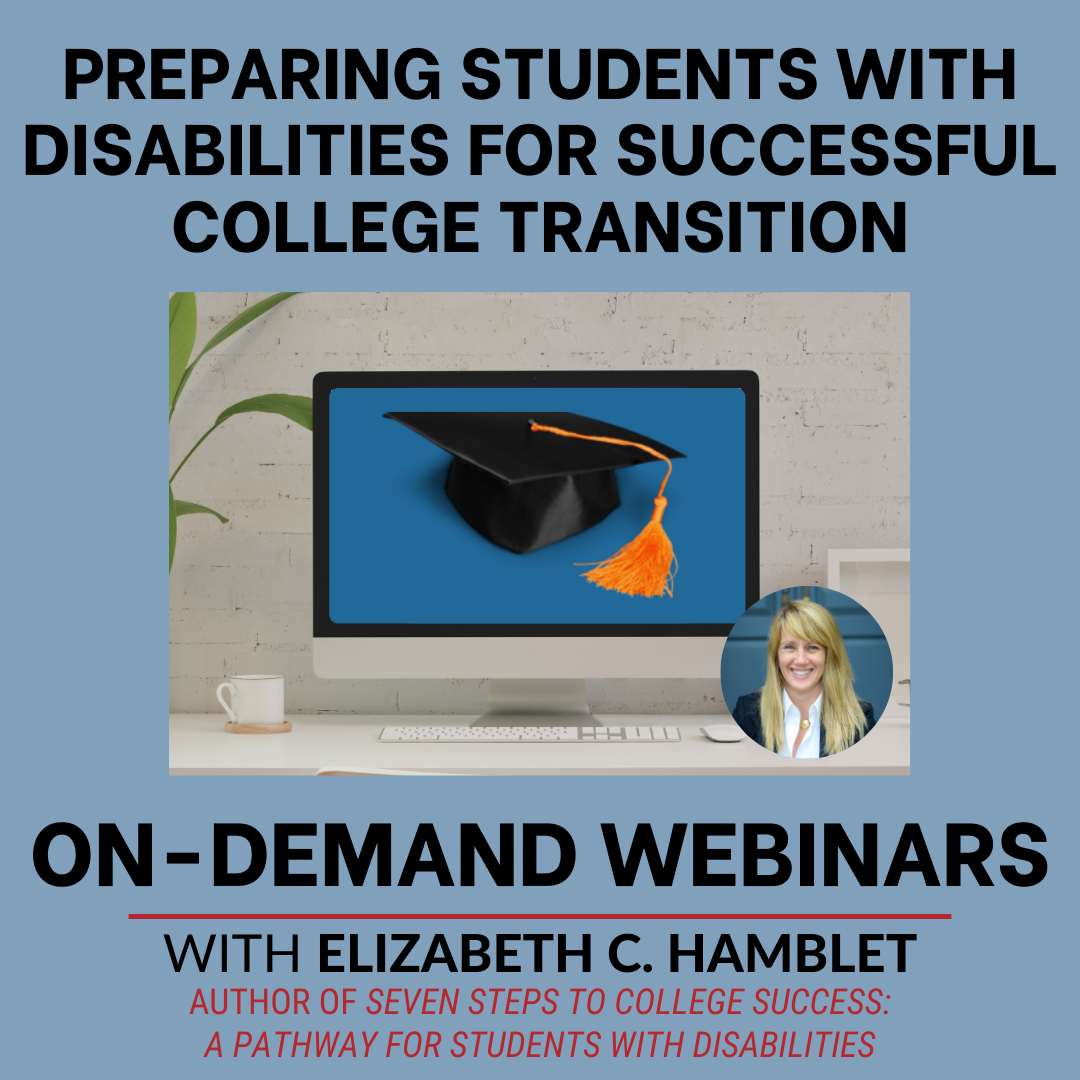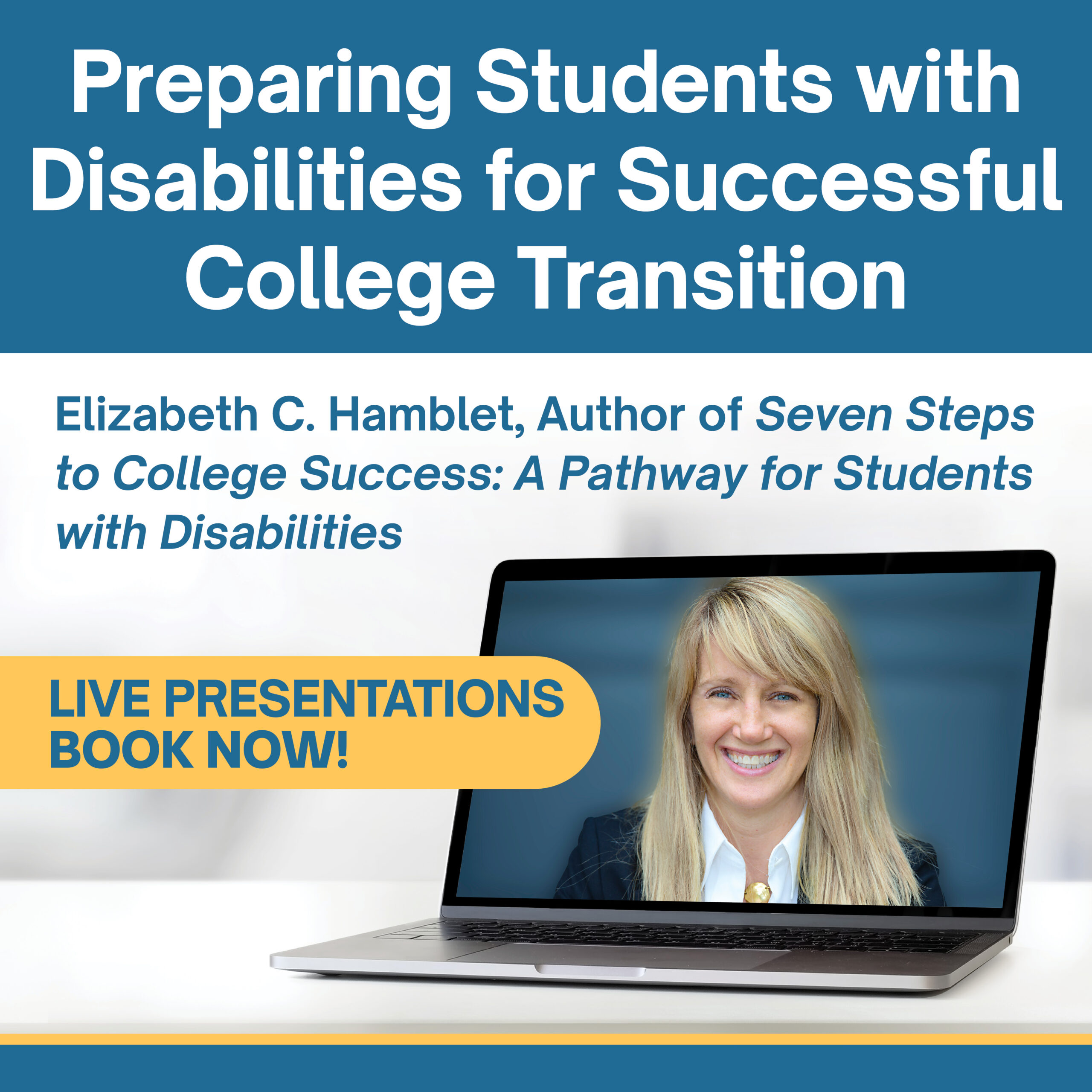Introduction
Some parents may think it’s important for their student to attend a college that offers a fee-based program for students with disabilities that go beyond the free basic accommodations all colleges have to provide. (Learn what these programs do and don’t provide.) But many students will do fine at college with the basic accommodations available. When developing my book, I asked directors at three of these programs to discuss how families can think about whether their program would be a good fit for a student.
Leann DiAndreth-Elkins is Executive Director of Disability Resources Services at Muskingum University, which offers the PLUS Program
Gabrielle Miller is Assistant Vice Provost and Executive Director of the University of Arizona’s Strategic Alternative Learning Techniques (SALT) Center
At the time of his interview, Scott van Loo was Director of the University of Denver’s Learning Effectiveness program
Q. What kinds of students get most benefit out of your program?
DiAndreth-Elkins: They are students who are really committed. They come to college to prepare for life after college. They want to pursue and find their passion in their academic major
They are also the students who want the help we offer. Some graduates say their consultant was their replacement mom” – they made sure they were on-task, stayed organized, etc.. We don’t want to be a replacement parent – we just want to help students who are interested in receiving our support.
Miller: Those who understand they learn differently tend to be the most successful. They can generally articulate what they need, what’s working, and what isn’t – thereby taking responsibility for their own success.
They can meet the requirements we set for them, like showing up for appointments. They’re somewhat organized. They have a sense of independence. They can set an alarm and get themselves to class, or to a meeting.
They’ve had conversations ahead of time to figure out how they’ll handle someone asking to buy their medication and what they’ll do if they do poorly on an exam. Everyone understands there will be some ups and downs. We’re here to everything we can to hep them be successful. But students have to be ready to show up and speak up.
Q. What kind of student gets least benefit?
Miller: Students who get the least benefit out of our program are those who are here because a parent tells them they have to be here.
They also might be students who chose the University of Arizona because it’s a school with Division I sports, and sororities and fraternities, and they want to have that kind of college experience. But they forget that they don’t get to have the college experience if they don’t keep their grades up, and they think that SALT Center staff can solve their problems. SALT Center is not a ‘wrap around’ program. We cannot guarantee that students will be successful. Students who need constant reminders and/or someone to hold them accountable for their success are unlikely to have the independence and self-knowledge to benefit from the SALT Center’s program.
van Loo: It’s the students who are too dependent upon others to do things for them. They’ll ask tutors to do work for them (ex. “Could you read me this assignment and tell me how to do it?”).
They don’t understand their role and responsibilities as a university student.
Students who don’t benefit get lost in the transition to college – they don’t check email, prioritize social life over academics and supports, etc. They miss appointments, don’t communicate, arent’ honst with us or their parents. They won’t admit to or staff that they missed class. Sometimes it’s that they really don’t know why they’re here at the university or what they want.
Q. What are your expectations for students?
DiAndreth-Elkins: We expect students to be committed to the services and understand how PLUS will benefit and support them. We expect them to attend class regularly because they need to be involved and interacting with professors and getting contact firsthand. Attending PLUS is not a substitution for going to class. They need to be in good academic standing.
We expect students to reach out if they need to miss an appointment to meet with a professor, or work on a group project, or for for an athletic event; we realize some things are beyond students’ control. But we want to keep them in a good routine. When a student just doesn’t show up for a tutoring appointment, we reach out and ask if they’re okay to see if we can help them resolve whatever kept them from making their tutoring appointment.
Miller: We know that students are going through a huge transition and sometimes it’s hard to articulate a question. Many just want to be like everyone else – they want their disability to disappear.
We’ll meet them wherever they are, but they have to show up, and they have to speak up. They have to go take the initiative and get themselves to class and come to us if they want help.
van Loo: We expect them to check their email daily and to respond to those messages, as all communication at the university is conducted this way. As soon as they are admitted to DU, the (and not the parents) this will begin. From that point onward, they’ll hear from Admissions, the registrar’s office, professors, and other university offices.
Author note
These answers should be seen as applying only to the programs these directors represent. You can pose these same questions to the staff at any of the other fee-based programs your student is considering. (And if your student isn’t interested in a program but you think they need one, asking these questions may be even more important.) Get more ideas for what to ask in Step 5 of my book.




